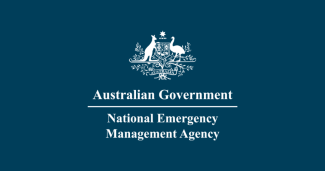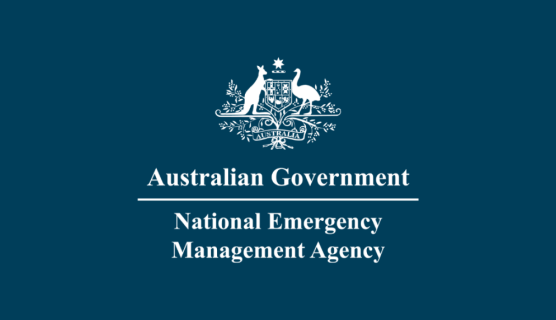STEPHANIE FERRIER: Today's heatwave conditions are a reminder of the bushfire risk and the importance of having an emergency plan, not just at home but wherever you're staying this summer. The National Emergency Management Agency is urging Australians to be ready. Deputy Coordinator-General Joe Buffone joins us now from Canberra. Thank you, Joe Buffone for coming on News Breakfast.
JOE BUFFONE: Good morning, Steph, how are you? And good morning listeners.
STEPHANIE FERRIER: Very well. And obviously you're wanting all of those travellers out there to have an absolutely fantastic Christmas break. Can you just explain some of the top tips that you have for travellers to make sure that they're prepared for any eventuality?
JOE BUFFONE: Yes, Steph, as you've heard we've got heatwave conditions pretty much right throughout Australia, and then in South Australia and Victoria we've got severe fire, and then in addition to that there'll be a change that will come through that will see severe wind conditions that will also bring lightning. So we've really got a mix.
And I think the key message is it doesn't matter where you are, if it's about heat, make sure that you're staying cool, and there's a whole range of things you can do. Make sure you drink water, you know, find an air-conditioned area. If not, you know, put yourself in a place that you could keep cool.
There's a really good website called Heat Watch that you can actually put in the area that you're in and it will tell you what the heatwave conditions are and what you can do.
The other critical thing is we've seen across in particular South Australia and Victoria, where we've got severe fire conditions or extreme fire conditions in fact, and there the key thing is pretty straight forward, know the area you're in. So actually know what the risks are and know where you're travelling.
The second part is have a plan. It doesn't have to be over complicated but make sure that you've got a plan so that you know when you actually get a warning or get some information, you actually know what to do.
Monitor the ABC, monitor the websites. There's SA Alert, there's Emergency Vic, there's Hazards Near Me. Right across the country there's apps that actually can give you alerts around while you're travelling.
The next thing is if you're a carer or you've got special needs, think about these additional things that you might need to do to make sure that you're safe.
And then finally, I just reinforce this, listen to emergency services. The local emergency services are those that know the area, they know what's going on and they'll be providing information out.
But, you know, monitor what's going. Know what the risks are. Have a plan and act on the advice of emergency services. We've got some of the best emergency services in the world, volunteers and career staff. They're all set up today in all the States and Territories, making sure that they're ready to respond to any event that we'll see, in particular in South Australia and Victoria.
STEPHANIE FERRIER: I guess if you're living there then people are always having that sort of information front of mind, but is there a concern that you have that if you've got people going on holidays, you know, they might be a little bit more complacent, they might be thinking more about their holidays rather than what could happen if things go pear shaped?
JOE BUFFONE: Look absolutely, you know. Look, now's our holiday season and Australians travel all around the place, they go to the beach, they go to the bush, and then the local residents are really well aware of what their environment is. But, you know, tourist operators as well. You need to be aware so that when you've got people coming in, you can actually brief them. Caravan parks, all of those sorts of things, exactly the same. So today is absolutely not the day to be complacent. Go, enjoy the beach, enjoy the bush, but there's total fire bans throughout Victoria in particular. Make sure that you adhere to those.
What we don't want to see is any fires start. There is a risk of fires this afternoon as the dry lightning comes through, but we want to make sure that there's no people that create fires, all that that does is create really severe risk. But don't be complacent today.
STEPHANIE FERRIER: Yeah, absolutely. And you were just saying then too, you know, know the local emergency app as well. It could be something as simple as making sure that you know what that is and you have that on your phone ready to go should you need it.
JOE BUFFONE: Absolutely. Make sure you download the local emergency app. But also, you know, when you're travelling, the local general store, they're generally aware of what's going on so you can get a lot of local information.
You know, today's very much a day about being aware, being prepared. The other thing nationally, we're really well prepared. You know, the large air tanker has been moved down to Albury, so that you can actually either support New South Wales or Victoria. We've got three large helicopters that are positioned in New South Wales and South Australia that can be deployed anywhere where they're needed. There are 160 aircraft nationally that can be moved around the country, again as needed. And as I just said, you know, our volunteers and career staff are ready to go and do an amazing job. But just the call out. Be aware, listen to ABC or other emergency broadcasters, download an app, speak to locals and have a great time but just be aware.
STEPHANIE FERRIER: Yeah, find the local frequency for your ABC Radio station. That's very sage advice. Joe Buffone, thank you so much for your time and that advice.
JOE BUFFONE: Yeah, thanks a lot, Steph.

